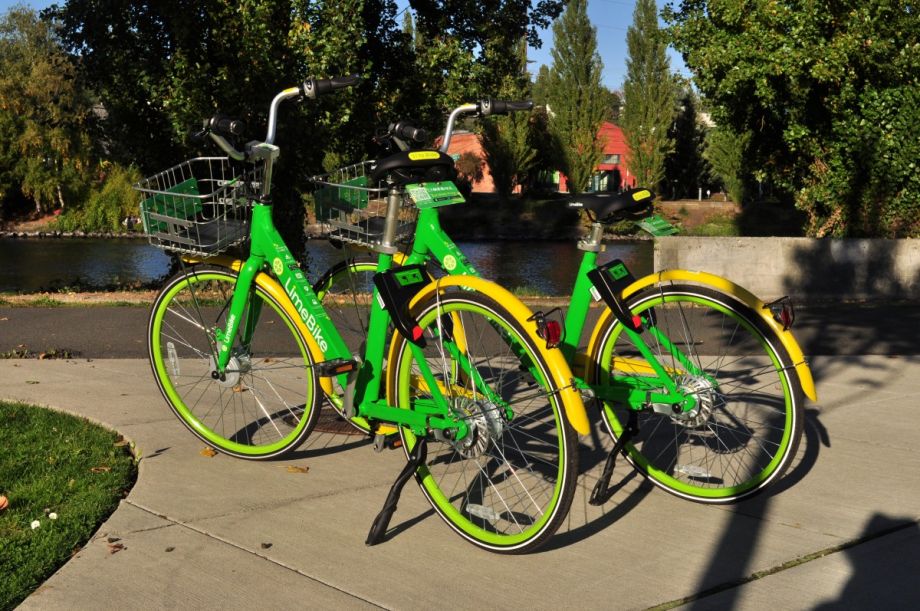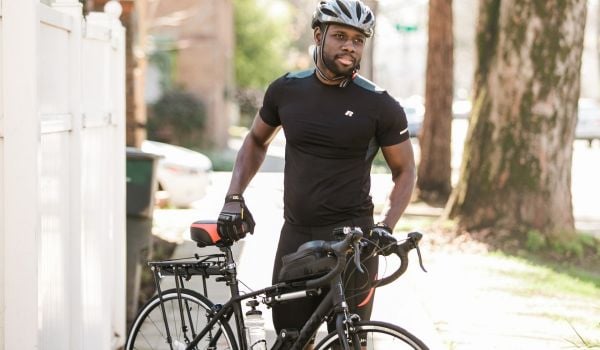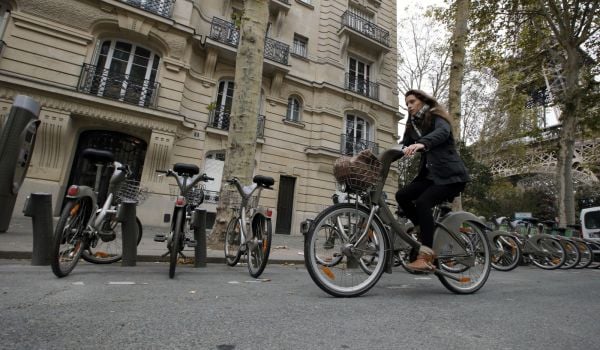Ridership numbers look good for private, dockless bike-share companies Spin, LimeBike and Ofo, after almost six months of operation in Seattle. As of the beginning of December, the three companies had served up 347,300 rides totaling 1,052,061 miles. Pronto, the city’s beleaguered, docked system, which shut down in January, had a total of 278,143 rides in its two and a half years of existence.
The Seattle Department of Transportation (SDOT) is running a yearlong pilot program to evaluate private bike-share use and the potential problems before creating the final regulations under which the companies will have to operate. Halfway through the pilot, SDOT isn’t quite ready to declare dockless bike-share a success, but it’s likely to continue permitting the companies after July 2018 when it ends. Some Seattle bike-share advocates are more skeptical of the early numbers and worry about whether the companies can really serve as a viable transportation tool.
“We’ve seen high mileage and high ridership numbers that compare very favorably to station-based systems around the country and what we had with Pronto,” says Joel Miller, SDOT bike-share program manager. “We’re not really prepared to say this is a success or isn’t a success until the end of the data collection period. In the next month or two, we will put together our full evaluation.”
The upside of high ridership numbers is tempered by some frustrations. The biggest problem is bike parking. Because the bikes use a rear wheel lock instead of locking to a rack or dock, users can and do park them anywhere. Bikes get left in the middle of the sidewalk, block ADA curb ramps, and block business and transit access. Because the bikes aren’t locked to anything, there’s also the issue of vandals throwing them in lakes and into the Puget Sound, and hanging them in trees and other creative and inconvenient places.
Miller says the majority of bikes are parked correctly, but with the three companies circulating close to 10,000 bikes, a small percentage of users can still pose real accessibility issues. Proper parking is going to be a factor in regulation. Miller says SDOT will require the companies to move improperly parked bikes within two hours of a problem being reported. If they fail to do so, SDOT will start reducing the number of bikes the company is permitted to put on the street.
“That doesn’t help someone in a wheelchair who has a bike in their way right there and then. But the two-hour rule incentivizes companies to deal with parking problems,” says Miller.
For Ryan Packer, a vocal bike-share advocate and senior editor at The Urbanist, the biggest problem with the new companies is their lack of reliability, both in terms of bike availability and mechanical quality.
Whereas Pronto had established stations that were almost guaranteed to have bikes whenever you wanted them, the dockless bikes could be anywhere at a given time. “I’m fairly disappointed in [dockless bike-share] so far. It’s less of an option you can depend on,” Packer says. He acknowledges that the flip side of that, the ability to leave the bike next to your destination, wherever it happens to be, is a plus.
The reliability of the bikes themselves is a factor for Packer as well. “The bikes are definitely a lower quality. I have to do a full inspection of them before I get on the bike, which I didn’t have to do with Pronto. I’ve come across bikes without pedals, bikes without seats.”
One of SDOT’s proposed solutions to the parking problems might help address the reliability issue. SDOT is considering making corrals for the bike-share bikes. They would paint boxes on the edge of sidewalks out of the right-of-way and on streets protected by physical barriers in the last 20 to 30 feet of a block before an intersection where it’s illegal for cars to park.
“The important thing to me is it needs to be really visible on the app,” says Packer. “It needs to be integrated. If people see the benefit of being able to drop off and pick up bikes consistently, then that will be really helpful. Similarly, I hope SDOT makes some strides towards encouraging more grouping of bikes at transit stations.”
Packer says there are clues in the data available so far that indicate people have been using dockless bike-share more for recreational rides than commutes. For one, nearly 80 percent of the trips were made at off-peak hours. For two, the average dockless bike-share ride is longer than 20 minutes and 3 miles, both longer than Pronto’s averages.
Miller says they’ll have a clearer picture of who’s using the bikes and why after their full data analysis in the coming months. But in general he says, “we like this as a mobility tool to serve all, not necessarily just for commuters.”
If it does turn out that dockless bike-share is mostly being used for recreation rather than transportation, it’s not necessarily a bad thing, says Packer. “It is great to have people biking and great if it helps people get more active. But we have serious transportation challenges, especially downtown. I think it also could have the potential to replace some transit, ride-hailing or single-occupancy vehicle trips. But it’s all about reliability and people getting used to the system.”
SDOT is aiming to have its data evaluation complete by the end of February and a regulatory framework established by the end of the spring.

Josh Cohen is Crosscut’s city reporter covering Seattle government, politics and the issues that shape life in the city.
Follow Josh .(JavaScript must be enabled to view this email address)
















